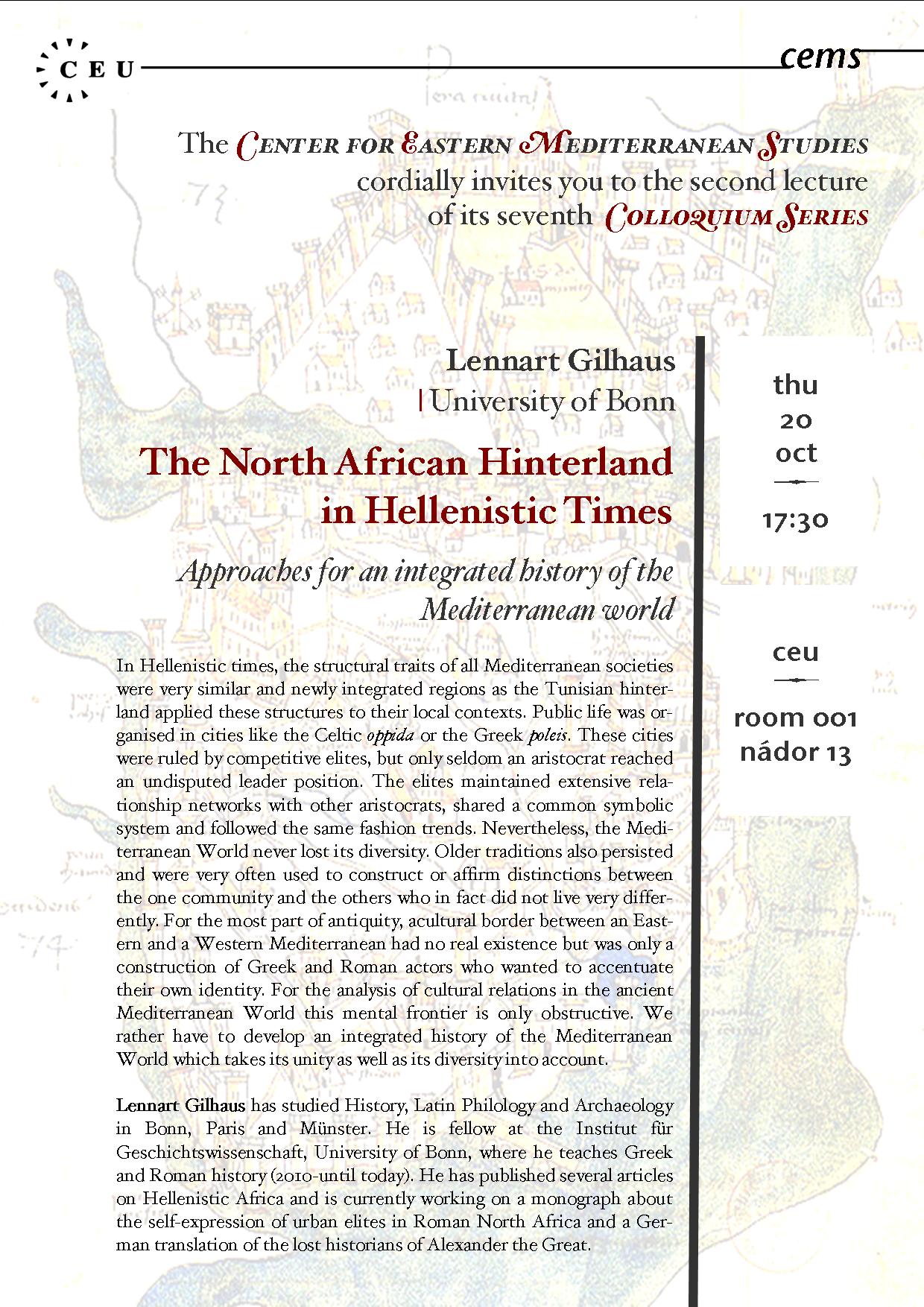The North African Hinterland in Hellenistic Times: approaches for an integrated history of the Mediterranean world
In Hellenistic times, the structural traits of all Mediterranean societies were very similar and newly integrated regions as the Tunisian hinterland applied these structures to their local contexts. Public life was organised in cities like the Celtic oppida or the Greek poleis. These cities were ruled by competitive elites, but only seldom an aristocrat reached an undisputed leader position. The elites maintained extensive relationship networks with other aristocrats, shared a common symbolic system and followed the same fashion trends. Nevertheless, the Mediterranean World never lost its diversity. Older traditions also persisted and were very often used to construct or affirm distinctions between the one community and the others who in fact did not live very differently. For the most part of antiquity, acultural border between an Eastern and a Western Mediterranean had no real existence but was only a construction of Greek and Roman actors who wanted to accentuate their own identity. For the analysis of cultural relations in the ancient Mediterranean World this mental frontier is only obstructive. We rather have to develop an integrated history of the Mediterranean World which takes its unity as well as its diversity into account.
Lennart Gilhaus has studied History, Latin Philology and Archaeology in Bonn, Paris and Münster. He is fellow at the Institut für Geschichtswissenschaft, University of Bonn, where he teaches Greek and Roman history (2010-until today). He has published several articles on Hellenistic Africa and is currently working on a monograph about the self-expression of urban elites in Roman North Africa and a German translation of the lost historians of Alexander the Great.
